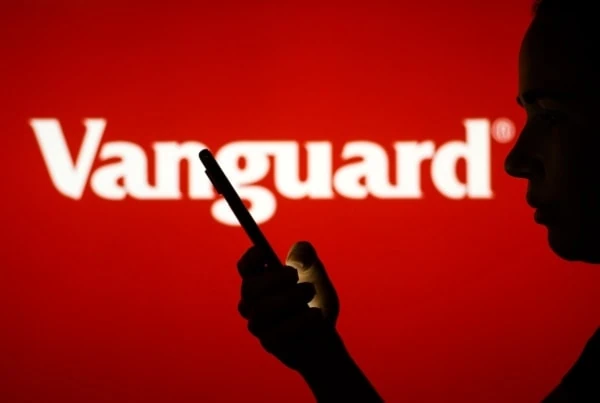The financial transition from a person’s teenage years to adulthood is a lot more gradual than you realize. Teens start taking on costs (like a car payment or a cell phone bill), get jobs, even start looking for loans (for college) … all before they ever become legal adults.
For a long time, though, teens never gradually started investing—they waited until their late 20s or 30s to finally take the plunge. But that’s changing, and so too are trading accounts, some of which now have minors specifically in mind.
Consider these findings from Fidelity’s 2023 Teens and Money study:
- 23% of teens say they’re already investing
- 91% of those who don’t say they plan on investing at some point
- 75% of those who don’t say they plan on starting before they graduate college
That’s a big change from when many of us were teens and didn’t think twice about stocks, bonds, or Wall Street. And if you ask me, that’s awfully encouraging.
Parents who want to nurture this interest might still be hesitant, though. After all, do you want to put your child behind the wheel of your average brokerage account and say “have at it, kid”? Heck no. Most regular brokerage accounts are too complex (and frankly too boring) for young minds just starting to learn the ropes.
But today, I’m going to talk about some options that specifically have kids in mind. Read on as I explore the pros and cons of some of the best trading accounts for minors—accounts that go above and beyond just letting families buy and sell, and instead offer parental controls, educational resources, and even package together other important financial tools like savings accounts and debit cards.
Read on to decide which trading account is the best fit for both you and your kid. The sooner you get started, the sooner your child or teen can grow not just their money, but their financial knowhow.
Trading Accounts for Minors—Our Top Pick: E*Trade
How Old Do You Have to Be to Buy Stocks?
To buy stocks completely on your own, you must be a legal adult. However, minors can invest in stocks, mutual funds, and other investments with the help of a trusted adult.
A minor can start investing at any age through a custodial account or joint brokerage account.
How Do You Open a Brokerage Account for a Minor?
It’s easy to open a brokerage account for a child. In the past, the type of custodial account you could open for a child depended on the state. Some states offered Uniform Gifts to Minors Act (UGMA) accounts and others offered Uniform Transfers to Minors Act (UTMA) accounts. (If you’re curious, here’s the difference between UTMA and UGMA.) Now, anyone in one of the 50 U.S. states or the District of Columbia automatically uses UTMA accounts.
You don’t need to be a parent to open a custodial account for a minor, by the way. You might be a grandparent, aunt, or other relative.
To open an account, you will need personal information, such as the child’s Social Security number. After the account is open, you can fund it and choose investments, such as stocks, exchange-traded funds (ETFs), or mutual funds, just like you would for a traditional brokerage account
It’s simple for a parent to open a joint brokerage account for their child as well. You just need personal information for both parties. A joint brokerage account isn’t limited to two people, so both parents are allowed on the account.
Remember: With a custodial account, the minor owns the assets, but the parent or trusted adult manages the account until the minor reaches the age of majority. With a joint brokerage account, both the minor and the adult jointly own the assets.
Related: What Is a UGMA Account? [Can You Open One in 2024?]
Best Trading Accounts for Minors
1. E*Trade (Top Teen Investing App/Custodial Account)
![Best Trading Accounts for Minors [Stock Investing Under 18] 4 etrade signup invest](https://youngandtheinvested.com/wp-content/uploads/etrade-signup-invest.webp)
- Platforms: Web, mobile app (Apple iOS, Android)
- Price: No monthly fees or trading commissions on stocks and ETFs through E*Trade’s Custodial Account
Most people know E*Trade as one of the leading providers of individual brokerage accounts, but you can also put the powerful platform to work saving for your child’s future, though a custodial account (and even a custodial IRA).
E*Trade’s custodial account for teens (and generally any minor) allows you to open up a custodial account that offers the chance to build a personalized portfolio through thousands of stocks, bonds, ETFs, and mutual funds, or you can have E*Trade select your holdings for you through its Core Portfolio robo-advisory service (minimum account size of $500 is needed to use this product). Further, you can choose to open a traditional custodial IRA or a custodial Roth IRA for children under age 18 who have earned income.
Just like with its individual brokerage accounts for adults, E*Trade custodial accounts offer zero-commission stock, ETF, and options trading. It also has a leg up on some platforms by offering $0-commission mutual fund, Treasury, and new-issue bond trading.
And if you want to learn more about investing—or want your young one to learn alongside you—E*Trade also boasts educational resources, including articles, videos, classes, monthly webinars, and even live events.
For a limited time, E*Trade offers a new account funding bonus (when you use reward code “OFFER25”) in the following amounts:
- $1,000-$4,999 earns $50.
- $5,000-$19,999 earns $150.
- $20,000-$49,999 earns $200.
- $50,000-$99,999 earns $300.
- $100,000-$199,999 earns $600.
- $200,000-$499,999 earns $800.
- $500,000-$999,999 earns $1,000.
- $1,000,000-$1,499,999 earns $3,000.
- $1,500,000-$1,999,999 earns $5,000.
- $2,000,000 or more earns $6,000.
To open a free E*Trade custodial account, click “Open Account” below.
Related: 10 Best Debit Cards for Teens [Reviewed by a CPA + Father]
2. Greenlight Max or Infinity
- Available: Sign up here
- Price: Max: $9.98/mo. Infinity: $14.98/mo. (All plans include cards for up to 5 children)
Greenlight is a premier kids’ financial app that teaches minors the ins and outs of saving, spending, and financial responsibility—and with a Greenlight Max or Greenlight Infinity plan, they can start to invest, too!
Greenlight’s investing app will help your kid learn the basics of investing, how stocks and exchange-traded funds (ETFs) work, and more with real money, real stocks, and real-life lessons—all with your direct involvement and supervision.
With Greenlight Investing, your child can:
- Start investing with as little as $1
- Buy fractional shares of companies they admire (say, kid-friendly stocks)
- Spread out their risk with ETFs
- Avoid trading commissions
Parents can enjoy peace of mind knowing that Greenlight’s popular guardrails extend to its investing offering, too. Teens can only invest in U.S.-listed stocks and ETFs that have either a market capitalization over $1 billion or a three-month average daily dollar volume of more than $500,000. And parents must approve every trade directly in the app.
And, of course, you get everything else that comes along with Greenlight. At the Max level, that includes a prepaid debit card with strong parental controls, mobile payments, ATM access, instant money transfers, and even 1% cash-back rewards. They can also save and get a 2% annual Greenlight Savings Reward—which is boosted to 5% at the Infinity level.
Read more in our Greenlight Card review, check out plan pricing below, or sign up for Greenlight Max or Infinity today.
- Greenlight is a financial solution for kids that allows them to spend with a debit card, earn money on savings, and even invest their money.
- Parents can use this app to teach kids how to invest with a brokerage account through Greenlight Max and Greenlight Infinity plans.
- Greenlight offers flexible parental controls for each child and real-time notifications of each transaction. And it's the only debit card that lets you choose the exact stores where kids can spend on the card.
- Families can earn 2% (Core), 3% (Max) or 5% (Infinity) per annum on their average daily savings balance of up to $5,000 per family. Also, Max and Infinity families can earn 1% cash back on their monthly expenditures.
- Unlike many apps that simply provide features and controls, Greenlight is also designed to spark discussions with children about spending, investing, and more, fostering a better educational experience.
- Best-in-class parental controls (can prohibit specific stores)
- Can add brokerage account to invest in stocks
- Intuitive Parent and Kid apps
- Competitive cash back and interest rates
- High price points
- No cash reload options
- No parent / child lending
Related: Best Greenlight Alternatives
3. BusyKid (Investing + Visa Prepaid Debit Card)
- Available: Sign up here
- Price: $48/yr. (Up to 5 cards)
If you’re looking for prepaid debit cards for kids that also teaches your children about money, lets you pay them allowance, allows them to spend, and gets them into investing, consider the award-winning BusyKid app and the connected BusyKid Visa Spend Card.
BusyKid also allows children to invest their earnings through the app. Doing so requires setting up a separate Apex Clearing account. Children can choose from hundreds of stocks and ETFs and invest commission-free with as little as $10!
BusyKid started as an easy-to-use, interactive chore app for kids, but has since added a prepaid debit card that allows your children to spend their money in stores and online. Your children can earn real money by completing chores and other tasks around the house, then use the app to learn valuable financial skills, such as budgeting, saving, and even giving back.
Parents can pay allowance on an ad hoc basis, or they can set up Auto-Allowance. When parents add to their children’s accounts, that money can be split between Save, Share, and Spend:
- Save: Parents can automatically allocate money toward a savings basket; however, parents can also match any money their children elect to save.
- Donate: Children can choose which charities they would like to give money to, and parents must approve before the cash is transferred.
- Spend: When they’re ready for independence, BusyKid has a Visa Spend Card so kids are never without cash in hand.
Also, with BusyKid, the parent isn’t the only person who can add money to child accounts. With a share of the QR code, grandparents, aunts, uncles, other family members, and even friends can add money—from birthday presents to paying for chores–for a $1 fee (plus any credit card or bank transaction costs).
In addition to the $48 annual subscription, BusyKid charges other fees, including a $1.50 ATM fee, 50 cents per declined transaction, $5 for a card reissue, and a $5 monthly fee for paper statements.
- BusyKid is an award-winning, parent-approved app that educates kids about money.
- Parents can pay allowance on an ad hoc basis, or they can set up Auto-Allowance.
- Parents can split allowance money across Save (and even match money in the Save category), Spend (which kids can access with their Visa Spend Card), and Donate (children can choose charities to donate to; parents must approve).
- Parents can set up a separate Apex Clearing brokerage account to allow their children to invest earnings through BusyKid, with as little as $10.
- Feature-heavy allowance function
- Offers investment functionality
- Combines several kid-focused financial needs in one app
- Charges a fee
- Lower customer user ratings than competitors
Related: 9 Best Allowance and Chore Apps for Kids [Easier Family Life]
Trading Accounts for Minors: FAQs
Can I open a trading account for a minor?
Yes, as previously mentioned, you can open an investment account for a minor.
Anyone can open a custodial account for an important child in their life. For educational savings, anyone can also open a 529 plan or Coverdell education savings account (ESA) for a child. For the former, the child owns the assets in the account and for the latter the adult owns them.
Parents can also open joint brokerage accounts with their children and have joint ownership over assets.
Can a minor have a retirement account?
Yes, a minor can have a retirement account if they have earned income. For example, if a teenager has a part-time job, a parent could set up a custodial IRA.
A custodial IRA, particularly a custodial Roth IRA, is an excellent account for a minor because, as a retirement account, it has tax benefits. During retirement, tax-free withdrawals can be taken from the account, even when withdrawing earnings.
However, these accounts have contribution limits. Just like an adult’s Roth IRA, the contributions can’t exceed annual contribution limits or the child’s amount of earned income that year. The 2023 IRA contribution limit for minors is $6,500 ($7,000 in 2024).
Parents can contribute to the account as long as their contributions don’t exceed the limits. Once the money is in the account, it belongs to the child and the parent cannot take it back.
Do custodial accounts affect financial aid eligibility?
Yes, the money in a custodial account can affect financial aid eligibility. The account assets belong to the minor, so financial aid formulas consider 20% of the money available for education costs.
Those opening investment accounts specifically for higher education, but expect to still need financial aid, should consider instead using 529 plans or Coverdell education savings accounts. The assets in these investment accounts belong to the parents, so only 5.64% counts towards the expected family contribution.
These accounts allow tax-free withdrawals as long as the money is being spent on qualified education expenses.
How are earnings in a custodial account taxed?
Custodial brokerage account earnings are considered taxable income and are subject to “kiddie tax” rules. There are three phases to the kiddie tax and if the earnings are low enough you don’t have to pay taxes that year.
For 2023, the breakdown for custodial account taxes is as follows:
- The first $0 to $1,250 of unearned income is tax-free ($0 to $1,300 in 2024)
- The next $1,251 to $2,500 is taxed at the child’s rate ($1,300 to $2,600 in 2024)
- Any amount over $2,500 is taxed at the parents’ rate (over $2,600 in 2024)
These rules don’t apply to custodial IRAs.
Related: 15 Best Investing Research & Stock Analysis Websites
What types of assets can you hold in a custodial account?
Custodial accounts can hold a wide range of assets. These accounts can hold popular stock market investments, such as stocks, bonds, exchange-traded funds, and mutual funds. Additionally, a custodial account can include real estate, life insurance policies, fine art, and much more.
There are some limitations, though. You cannot trade on margin in a custodial account or trade derivatives, futures, or other highly speculative investments.
Who owns the assets in a custodial account?
The beneficiary, which is the minor, owns all of the assets in a custodial brokerage account. While the custodian manages the account, they don’t actually own the assets.
Adults are allowed to make withdrawals from custodial accounts at any time, but the money withdrawn must be used in a way that directly benefits the minor. Parents cannot withdraw money to spend on themselves.
Once the beneficiary reaches the age of majority, which varies by state, she takes control of the custodial account.
Do parents pay a gift tax for custodial account contributions?
Custodial accounts (except for custodial IRAs) have no contribution limits.
However, when parents add money to custodial accounts, it counts towards gift contribution limits. For 2023, the annual federal gift tax exclusion is $17,000 for an individual or $34,000 per married couple ($18,000 and $36,000 in 2024).
If parents exceed that limit with contributions to custodial accounts, they need to fill out an IRS form so they can deduct the excess money from their lifetime gift tax exemption limits. As of 2023, the lifetime limit is $12.92 million ($13.61 million in 2024). Unless you expect to surpass the lifetime limit, you shouldn’t face any issues.
Related:




![Best Trading Accounts for Minors [Stock Investing Under 18] 1 best trading accounts for minors](https://youngandtheinvested.com/wp-content/uploads/best-trading-accounts-for-minors-584x389.webp)
![Best Trading Accounts for Minors [Stock Investing Under 18] 2 child reading newspaper kid financial education](https://youngandtheinvested.com/wp-content/uploads/child-reading-newspaper-kid-financial-education.webp)
![Best Trading Accounts for Minors [Stock Investing Under 18] 3 mother teen kid daughter laptop table](https://youngandtheinvested.com/wp-content/uploads/mother-teen-kid-daughter-laptop-table.webp)
![Best Trading Accounts for Minors [Stock Investing Under 18] 5 greenlight sign up new](https://youngandtheinvested.com/wp-content/uploads/greenlight-sign-up-new.webp)
![Best Trading Accounts for Minors [Stock Investing Under 18] 6 Greenlight | The Investing App and Prepaid Card for Kids](https://youngandtheinvested.com/wp-content/uploads/greenlight-transparent-logo-text.webp)
![Best Trading Accounts for Minors [Stock Investing Under 18] 7 busykid signup new1](https://youngandtheinvested.com/wp-content/uploads/busykid-signup-new1.webp)
![Best Trading Accounts for Minors [Stock Investing Under 18] 8 BusyKid | Chores and Allowance App With Debit Card](https://youngandtheinvested.com/wp-content/uploads/busykid-logo-transparent-symbol.webp)
![Best Trading Accounts for Minors [Stock Investing Under 18] 9 questions and answers large](https://youngandtheinvested.com/wp-content/uploads/questions-and-answers-large-1.webp)



